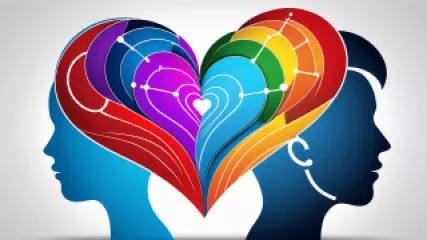Understanding Emotional Intelligence Assessment
Emotional intelligence (EI) is a crucial aspect of personal and professional development. It refers to the ability to recognize and manage our own emotions, as well as understand and empathize with the emotions of others. By improving emotional intelligence, individuals can enhance their communication skills, build stronger relationships, and make better decisions.
Introduction to Emotional Intelligence Assessment
Emotional intelligence assessment plays a significant role in understanding and measuring an individual's emotional intelligence. It provides valuable insights into self-awareness, self-regulation, social awareness, and relationship management. With the help of scientifically designed assessments, individuals can gain a deeper understanding of their emotional strengths and areas for improvement.
In this research summary, we will explore the basics of emotional intelligence assessment, its benefits, and some popular assessment tools used today.
The Benefits of Emotional Intelligence Assessment
Emotional intelligence assessment offers several benefits for personal and professional growth. Let's take a closer look at some of these advantages:
- Self-awareness: Assessments provide individuals with a clear understanding of their emotional strengths and weaknesses. This self-awareness allows them to identify areas for improvement and develop strategies to enhance their emotional intelligence.
- Self-regulation: By assessing their emotional intelligence, individuals can gain insights into their ability to regulate their emotions effectively. This includes managing stress, staying calm under pressure, and adapting to changing circumstances.
- Social awareness: Emotional intelligence assessments help individuals develop empathy and understanding towards others' emotions. This increased social awareness enables better communication, collaboration, and conflict resolution.
- Relationship management: By understanding their emotional intelligence, individuals can strengthen their relationships and build meaningful connections with others. They can effectively navigate social dynamics, inspire and influence others, and resolve conflicts constructively.
Popular Emotional Intelligence Assessment Tools
Several well-established assessment tools are available to measure emotional intelligence accurately. Let's explore some of the commonly used ones:
1. The Mayer-Salovey-Caruso Emotional Intelligence Test (MSCEIT)
The MSCEIT is a performance-based assessment that evaluates an individual's ability to perceive, understand, and manage emotions. This test measures four branches of emotional intelligence: perceiving emotions, facilitating thought, understanding emotions, and managing emotions.
2. The Emotional Quotient Inventory (EQ-i 2.0)
The EQ-i 2.0 is a self-report assessment that measures emotional intelligence across five composite scales: self-perception, self-expression, interpersonal, decision-making, and stress management. It provides individuals with a comprehensive report on their emotional and social functioning.
3. The Genos Emotional Intelligence Inventory (Genos EI)
The Genos EI assessment focuses on measuring emotional intelligence in the workplace. It assesses key competencies such as self-awareness, empathy, emotional reasoning, and emotional self-management. The results provide organizations with valuable insights for leadership development and employee engagement.
4. The BarOn Emotional Quotient Inventory (BarOn EQ-i)
The BarOn EQ-i is a self-report assessment that measures emotional and social functioning across five composite scales: intrapersonal, interpersonal, stress management, adaptability, and general mood. This assessment helps individuals identify areas for growth and development.
Conclusion
Emotional intelligence assessment plays a vital role in personal and professional growth. By understanding and measuring our emotional intelligence, we can identify areas for improvement and develop strategies to enhance our overall well-being. The benefits of emotional intelligence assessment extend beyond individual growth and can positively impact relationships and organizational success. Utilizing popular assessment tools such as the MSCEIT, EQ-i 2.0, Genos EI, and BarOn EQ-i can provide valuable insights into our emotional strengths and areas for development. Embracing emotional intelligence assessment is a powerful step towards improving our emotional intelligence and leading a more fulfilling life.






